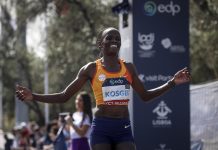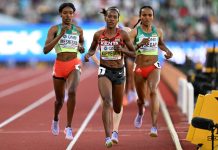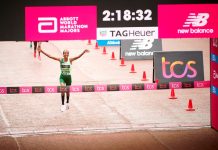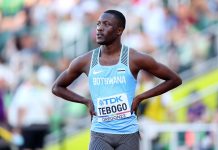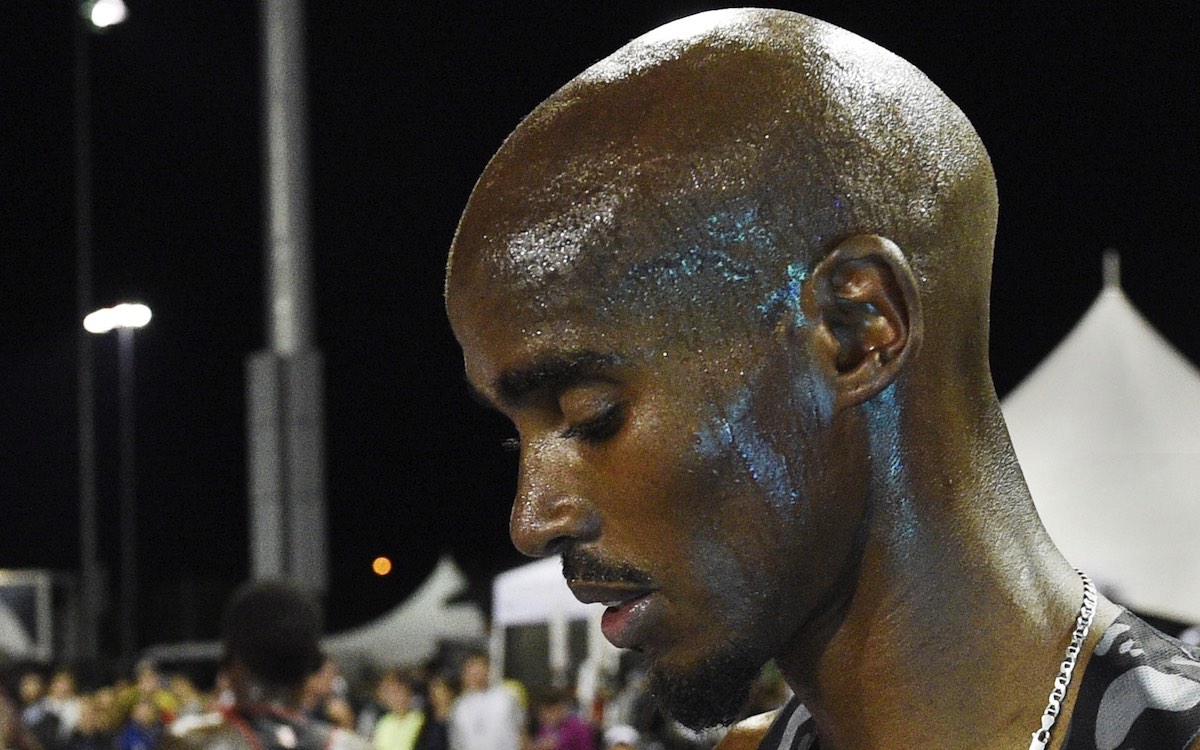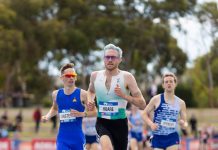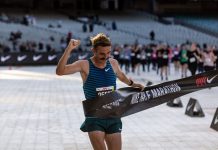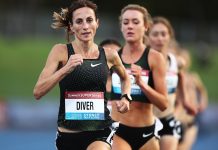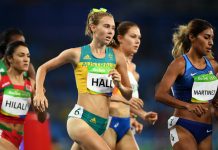No 10,000m at Pre’, plus Rio medals returned.
A column by Len Johnson – Runner’s Tribe
No Mo’ Ten
Pardon me. The realisation hit late. It is the eve of the Prefontaine Classic and I have just noticed there is no 10,000.
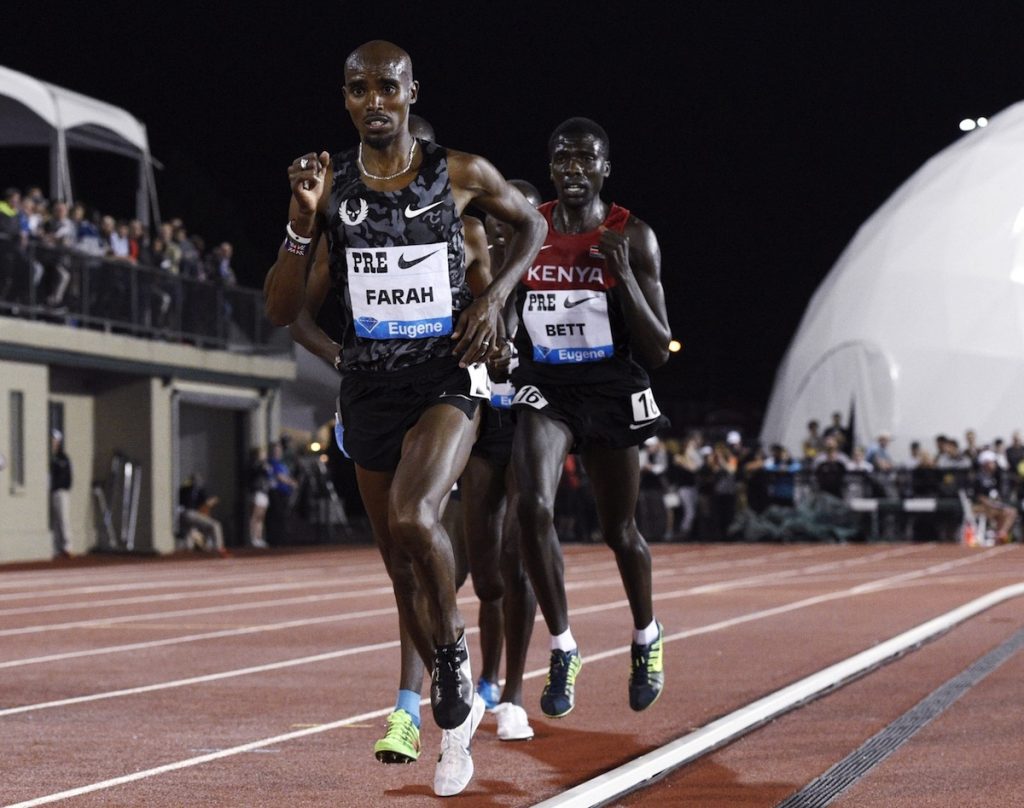
It may not have the storied history of our own Zatopek 10,000 – 56 editions and still going strong – but the men’s 10,000 at the Pre’ has been a highlight each of the past six years, and there had been the occasional appearance before that. The London 2012 Olympic year saw a women’s 10,000 as well.
Even if I was never there in person, the thought of Friday night at Hayward Field with the gates thrown open and a world-class 10,000 field on the line was enough to excite from thousands of kilometres away.
I’ve hardly ever met a 10,000 that I didn’t like. I say ‘hardly ever’, because I can think of one; even then, the crowd convinced me I was wrong. That was on the opening day of the World Cup in Canberra on 4 October, 1985.
Having spent the previous year working for the organising committee, perhaps my expectations were too high. Anyway, I watched with disappointment as the field plodded around for most of the first 24 laps.
The words, “this must be the worst ‘10’ ever,” had barely passed my lips before the late Pat Porter launched a despairing sub-57 second final lap only to be passed by Ethiopia’s Wodajo Bulti in the last few, disparate strides. Bulti won by six-hundredths of a second, with East Germany’s Werner Schildhauer following a few metres behind in third place.
The crowd went wild and then I was further astounded at how many people told me what a great 10,000 it was over the next few hours. Seems like Pat Porter and I were the only two who didn’t like it.
No doubt there are good reasons why there is no ‘10’ at this year’s Pre. I don’t know what the official rationale is, but guess it goes something like “no Mo (Farah), Rupp marathon, no 10,000.” Mo is running his 10,000 in Ostrava on 27 June, Rupp ran Boston last month and the Ethiopians are presumably all going to Hengelo on 11 June, leaving a pretty slim field for a possible Eugene 10,000.
Fortunately, what the Pre Classic loses on the 10k swings, it gets back on the 5000 roundabouts. the women’s 5000 slots into the men’s 10,000 timeslot in the Friday night pre-program and Genzebe Dibaba will attempt to re-arrange the Dibaba family pecking order with an assault on older sister Tirunesh’s world record.
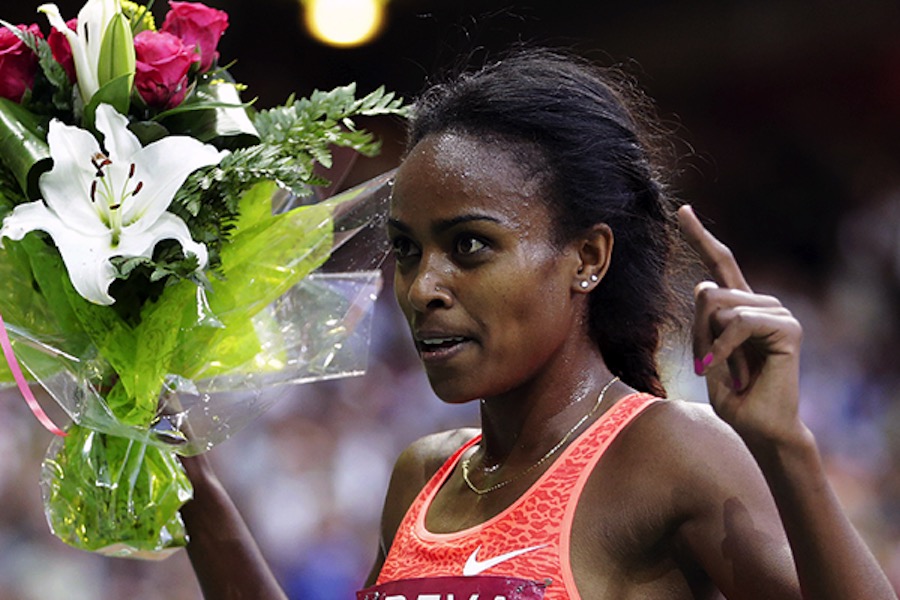
The men’s 5000, on the main Saturday program, features a field which, if it cannot be running twice the distance, is at least doing the next best thing. Mo will be there, coming off his 3:34 1500 last week, with Geoffrey Kamworor, Paul Chelimo, Caleb Ndiku and Australia’s Patrick Tiernan among the many hoping to take him down.
There are plenty of other Aussies competing, too, including Linden Hall in the 1500, Luke Mathews in the international mile, Ryan Gregson in the Bowerman mile and Madeline Hills in the 5000.
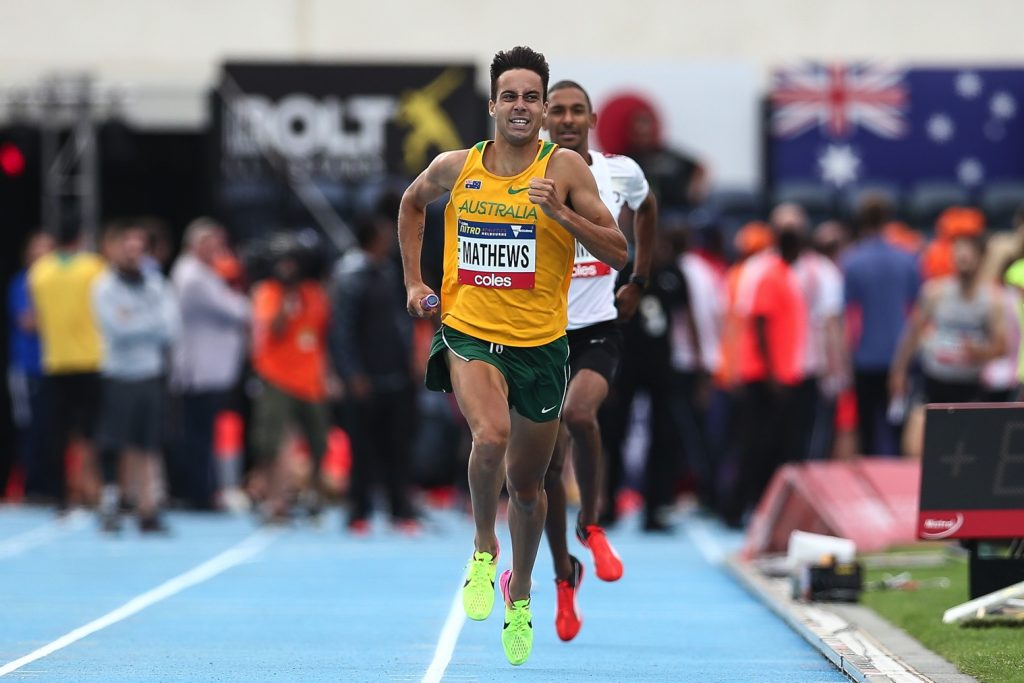
Hopefully, the 10,000 will be back next year. There aren’t enough good ‘10s’ on the international program that we can afford to lose one. The 10,000 at the annual Van Damme Memorial in Brussels was lost to the program in 2012 and, since then, the race at the Pre has been the best on the international circuit.
Kenenisa Bekele holds the meeting (and Hayward Field) record with his 26:25.97 in 2008, the year he was on his way to an historic Olympic double in Beijing. Tirunesh Dibaba ran 30:24.39 in setting the women’s record in 2012.
No, Virginia, medals aren’t forever
Records are made to be broken; gold medals last forever – was reportedly John Walker’s response to criticisms of his modest winning time in the Montreal 1976 Olympic 1500 metres.
Heaven knows if Walker actually said it, but the saying (or others expressing a similar sentiment) is one of the shibboleths of the sporting world.
You can quibble – someone usually does succeed you as a medallist at the very next championships, for instance. And Roger Bannister would still be most famous now for being the first man to break four minutes for the mile regardless of how many medals he won in his career. But there would be general agreement that medals do last forever.
Except, now, we learn they don’t.
News from Rio this week was that 130 of the 2488 medals awarded to Olympic and Paralympic competitors last year have been returned to the Rio mint for repair. The medals had developed either rust or black spots, a Rio Games’ spokesman said.
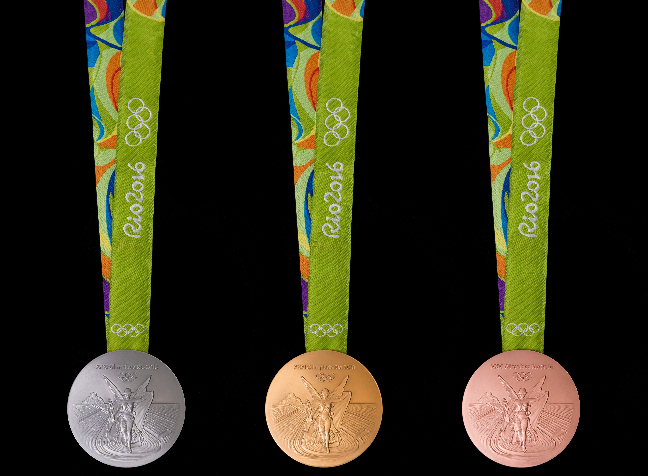
Some of the ‘eco-friendly’ and ‘sustainable’ medals seem to have become too ‘friendly’ with their environment and reacted in ways threatening their sustainability. Sort of like some of the medallists themselves, I guess. Remember Robert Harting in the 2012 London Games who celebrated so hard that he lost his accreditation pass and had to sleep at the Tube station outside the Olympic Village. Harting’s sustainability may not have come under threat, but he certainly woke up feeling a little ‘spotty’.
And Chris Brasher, one of Roger Bannister’s pacemakers in the first sub-four minute mile, used to claim he was the only Olympic gold medallist to have received his medal while ‘under the weather.’
Brasher crossed the line first in the steeplechase in Melbourne in 1956 but was initially disqualified for interference. The decision was overturned on appeal, but by then it was too late for the medal presentation.
Ceremonies can be postponed; celebrations, not so much. Brasher partied with teammates (maybe even including Bannister, who was in Melbourne for the Games) into the night and next morning. He wrote in an anniversary piece years later that he was very much the worse for wear when he got his medal.
Fortunately, hangovers aren’t forever either!
End
About the Author-
 Len Johnson wrote for The Melbourne Age as an athletics writer for over 20 years, covering five Olympics, 10 world championships, and five Commonwealth Games.
Len Johnson wrote for The Melbourne Age as an athletics writer for over 20 years, covering five Olympics, 10 world championships, and five Commonwealth Games.
He has been the long-time lead columnist on RT and is one of the world’s most respected athletic writers.
He is also a former national class distance runner (2.19.32 marathon) and trained with Chris Wardlaw and Robert de Castella among other running legends. He is the author of The Landy Era.



